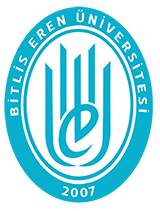Electrospun TiO2 Nanofibers in the Presence of Avocado Seed Extract
Abstract
Plant extracts are efficient reducing agents for the synthesis of oxide materials and can regulate fiber diameter, pore size, and phase structure in these materials because of their high organic macromolecule content. In this study, titanium tetraisopropoxide (TTIP) was used as a TiO2 precursor, and PVP polymer was used as the carrier polymer for electrospinning. Avocado seed extract (ASE), which is a new and valuable source of phenolic compounds, was used for the coordination and reduction of TTIP. ASE was obtained by methanol-water extraction. The total phenolic content of ASE was calculated to be 0.16 g GAE / g dry ASE, and the total dissolved protein amount of ASE was calculated to be equivalent to 0.78 g BSA / g dry ASE. TiO2-PVP-Avocado seed extract (T/P/A) composite nanofibers were produced at different voltages, distances, and polymer concentrations. Crystalline TiO2 formation was not observed in as-spun nanofibers; thus, selected nanofibers were heat treated at 500 oC for 3 h. Smooth and integrated TiO2 nanofibers prepared by using 5 w% PVP at 15 kV and 15 cm distance with or without ASE were imaged by Scanning Electron Microscopy (SEM). X-ray Diffraction (XRD) patterns of heat treated TiO2 nanofibers prepared in the presence of ASE crystallized mainly in anatase form. However, both anatase and rutile phases were detected in the crystalline structure of TiO2 nanofibers when ASE was not used. ASE incorporation affected the phase transformation of TiO2 nanofibers, indicating that the anataserutile ratio of TiO2 nanofibers may also be controlled by the presence of ASE.
Collections

DSpace@BEU by Bitlis Eren University Institutional Repository is licensed under a Creative Commons Attribution-NonCommercial-NoDerivs 4.0 Unported License..













